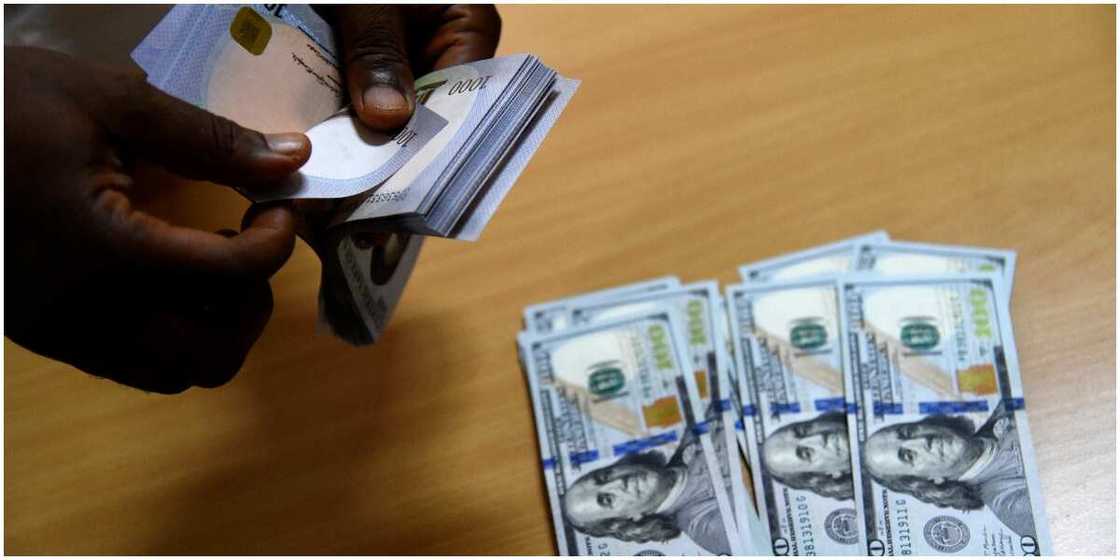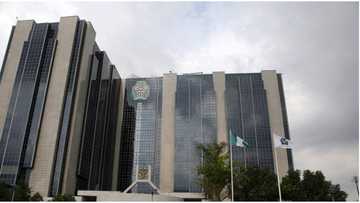Naira Depreciates at Black Market, Official Channel After CBN Devaluation
- The Nigerian currency gets weaker as it depreciated against the dollar in the parallel market
- Following the central bank's devaluation of naira, it depreciated further at the NAFEX window
- At the end of Wednesday, naira closed at N493 to one dollar, down by N6 when compared to Tuesday's trading
Naira became weaker to dollar on Wednesday after it depreciated by N6 to settle at N493 to one dollar, against the N487/$1 the black market closed with on Tuesday.
This is the weakest naira has sold in the last six months. Tuesday's parallel market price had broke this low level when naira hit N487 to a dollar, as seen on AbokiFX data.
According to FMDQ, the official exchange rate closed at N411.50 on the investors & exporters window for $1, showing a depreciation in naira value when compared to the N411.38 for one dollar it opened the market with.
This reflects the naira became weaker on Wednesday, as it was down by N0.12 kobo. The Nigerian currency has remained weak even after the Central Bank of Nigeria devalued the naira.

Source: Getty Images
The devaluation was made following the apex bank's adoption of the investors & exporters window rate on Monday, which is the unification of the bank's rate and that of NAFEX.
CBN has continued to downplay the black market, which Godwin Emefiele, governor of the apex bank, has described as market for illegal businesses that is avoiding official scrutiny for business legitimacy.
Meanwhile, Legit.ng had previously reported that bread prices would skyrocket following decision by the Association of Masters Bakers and Caterers of Nigeria to add 30% to their asking price.
The association said prices of raw materials such as flours have increased significantly, and in order to remain operational, bakers have to increase their bread prices.
Ths body of bakers also stated that regulatory oversight should be given to the National Agency for Food and Drug Administration and Control to ease regulation process.
Source: Legit.ng


